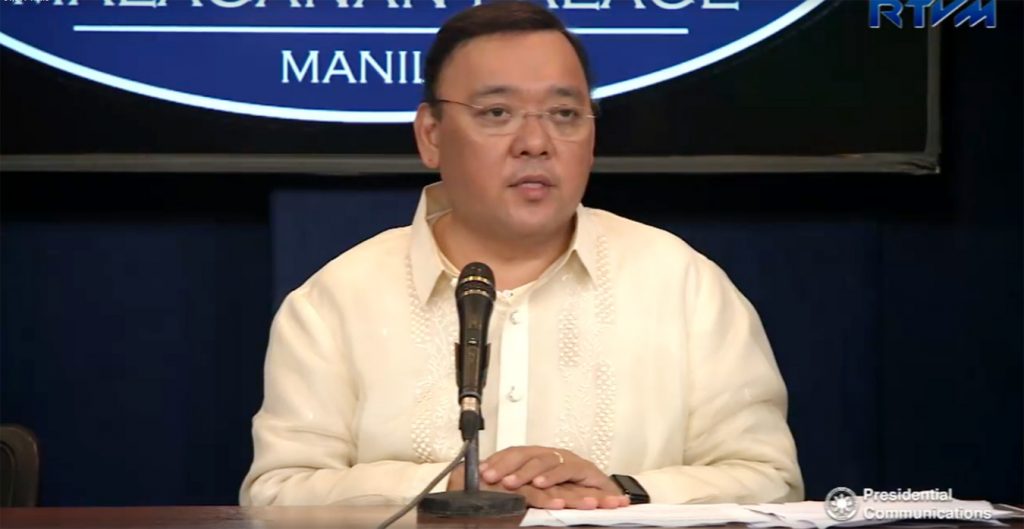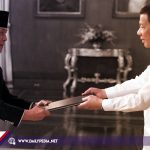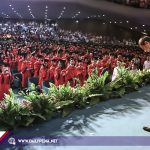- Palace to cushion impact of surging global oil prices
- Spokesperson Harry Roque Jr. relayed the President’s assurance that the government is not taking the oil price hike crisis sitting down.
Malacañang on Monday, May 28, said the Duterte administration is reviewing all possible options to alleviate the impact of the rising global crude costs on Filipino consumers.
Presidential Spokesperson Harry Roque Jr. in a Palace press briefing relayed the President’s assurance that the government is not taking the oil price hike crisis sitting down.
“Ang assurance lang po ni Presidente, hindi po tayo nakaupo lamang. Tinitingnan po natin lahat ng options, at kung pupwedeng makahanap ng paraan, hahanapin po natin ‘yan,” the Secretary said, stressing that the pace of the global increase in oil prices is enough reason for the government to explore all possible alleviation measures.

Roque said the different government agencies are expected to submit their reports and suggestions on the matter during their upcoming Cabinet meeting with the President next month.
Among the measures being considered by the government is to import cheaper petroleum products from nations like Russia and the United States, which are not members of the Organization of Petroleum Exporting Countries (OPEC), Roque cited.
“Alam natin na ang pagtaas ng mga presyo ng mga bilihin ay dahil sa pagtaas ng presyo ng krudo sa pandaigdigang merkado. Kaya nga po patungo tayo sa hakbang na humahanap tayo ng mga alternatibong mga suplayer at ang projection naman po, dahil nga ang mga bansang Russia ay hindi naman miyembro ng OPEC at nagi-increase sila ng production, may posibilidad na mapababa ang presyo,” he stated.
“Meron na pong standing order, itong linggong ito, expect na kakalampagin talaga ang DOE [Department of Energy] at DFA [Department of Foreign Affairs] na pabilisin ang posibilidad na mag-angkat ng mas murang diesel sa Russia,” Roque added.
The Spokesperson said the DOE has already been tasked to ensure the proper monitoring of oil prices in the country, so that there would be no disparity between the costs in the international and the local markets.
Furthermore, he said the government is currently in talks with countries like Thailand, Japan, and the United States to guarantee supply security and strategic oil stockpiling.
Meanwhile, on calls to suspend the implementation of the Tax Reform for Acceleration and Inclusion (TRAIN) Act, Roque said the executive branch has no power to do so since it is only Congress that can repeal the law through legislation.
He said what the President can do is to implement an existing provision under the TRAIN Act, which would allow the suspension of excise taxes on oil products in January of next year, if imported fuel prices reach more than $80 per barrel for three consecutive months this year.
“Ang gagawin ng Presidente, kung anong nakasaad sa batas… Kapag ang Presidente po ay nagsuspinde, ‘yan naman po ay labag sa Saligang Batas,” Roque stated.
He then expressed hope that Congress would not suspend the law altogether, noting that the government has had a “record tax collection primarily because of TRAIN.” He said suspending the tax reform law would affect existing projects of the government since there is already a projected expenditure for the expected rise in tax intakes due to TRAIN.
“Poverty incidence rate could be reduced to 14% by 2022”
During the same press briefing, Malacañang assured the public that, despite criticisms against its tax reform law, the government is well on its way towards fulfilling the goal of alleviating poverty in the country.
Secretary Roque cited a recent assessment made by the Asian Development Bank (ADB) showing that the Philippines will be able to reduce the poverty incidence rate to 14 percent by 2022.
According to the Palace official, the ADB lauded the Duterte administration’s aggressive spending on infrastructure through its “Build, Build, Build” infrastructure program, which could bring in more employment opportunities, improve connectivity, and boost small and medium enterprises.
“The ADB also noted that the government’s Conditional Cash Transfer (CCT) program has made a substantial contribution in addressing inequality and poverty across the country,” Roque stressed.
“We are confident that government will help transform the Philippines into a high middle-income economy by 2022. Through further modernizing the country’s infrastructure and making available social protection programs to the poor, we hope that these will help Filipinos lead more comfortable lives,” he added.



